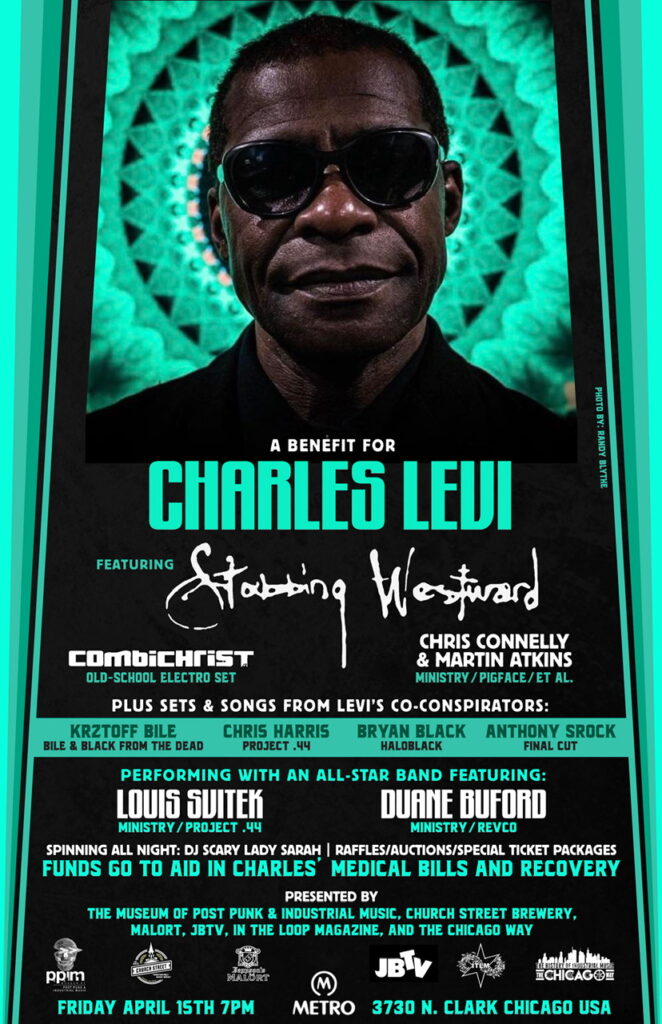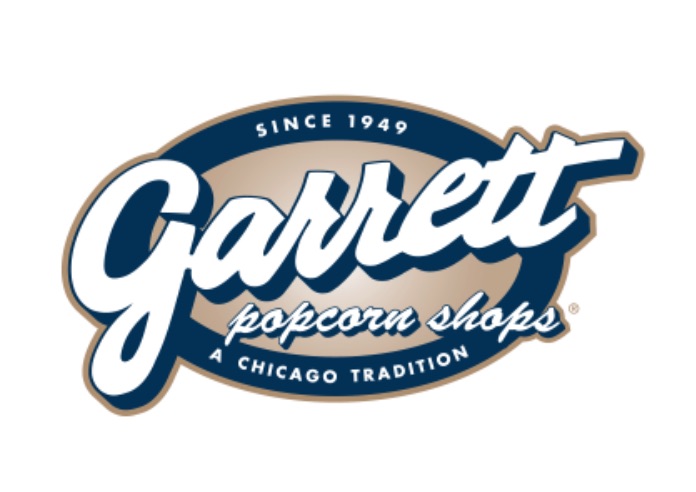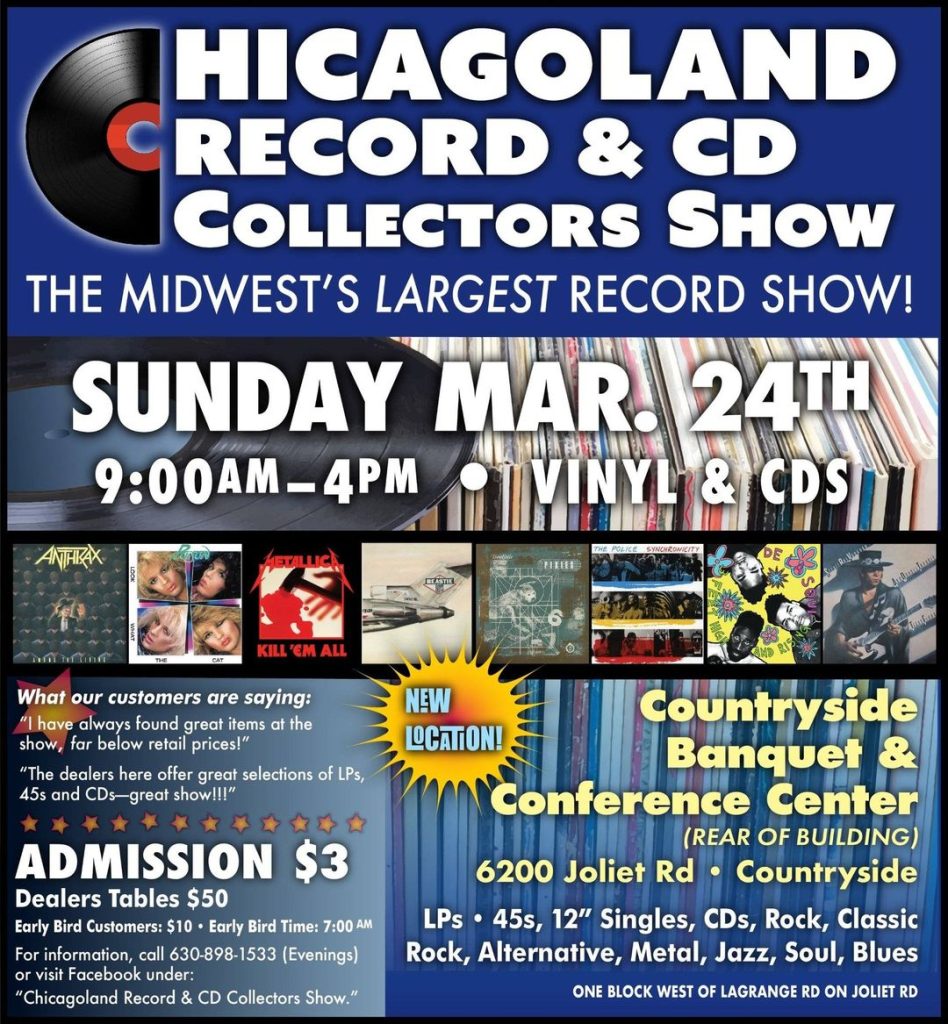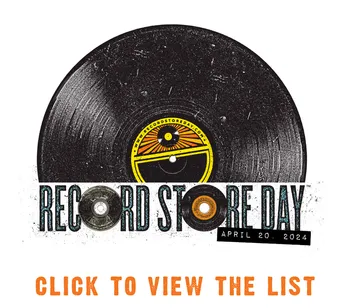Latest News
- Legendary Mask Maker, Zagone Studios, Approaches Fifty-Years Of Innovation Right Here In Chicago
- Photo Gallery: The Ultimate Doors @ Genesee Theatre (Waukegan, IL)
- The Historic Stage At The Genesee Theatre Transformed Into A Time Machine Last Night Reviving The Late 1960’s Doors Legacy
- Chicago’s Own: Post‑Punk Duo BELLHEAD Release Fierce New Cover of Le Tigre’s “The The Empty”
- Milwaukee’s Mega Festival, Summerfest, Returns For A 2026 Lineup To Impress Even The Most Discerning Music Fans
- Broadway In Chicago And Metra Continue The Free Ride Promotion With Hamilton
Wadsworth Man, Creates Moving Film Tribute To Home, Family and Career With Biopic Dramedy Focused Around One Special Event: 5-25-77
May 25, 2017 James Currie Music News, Features, Interviews, Reviews 0
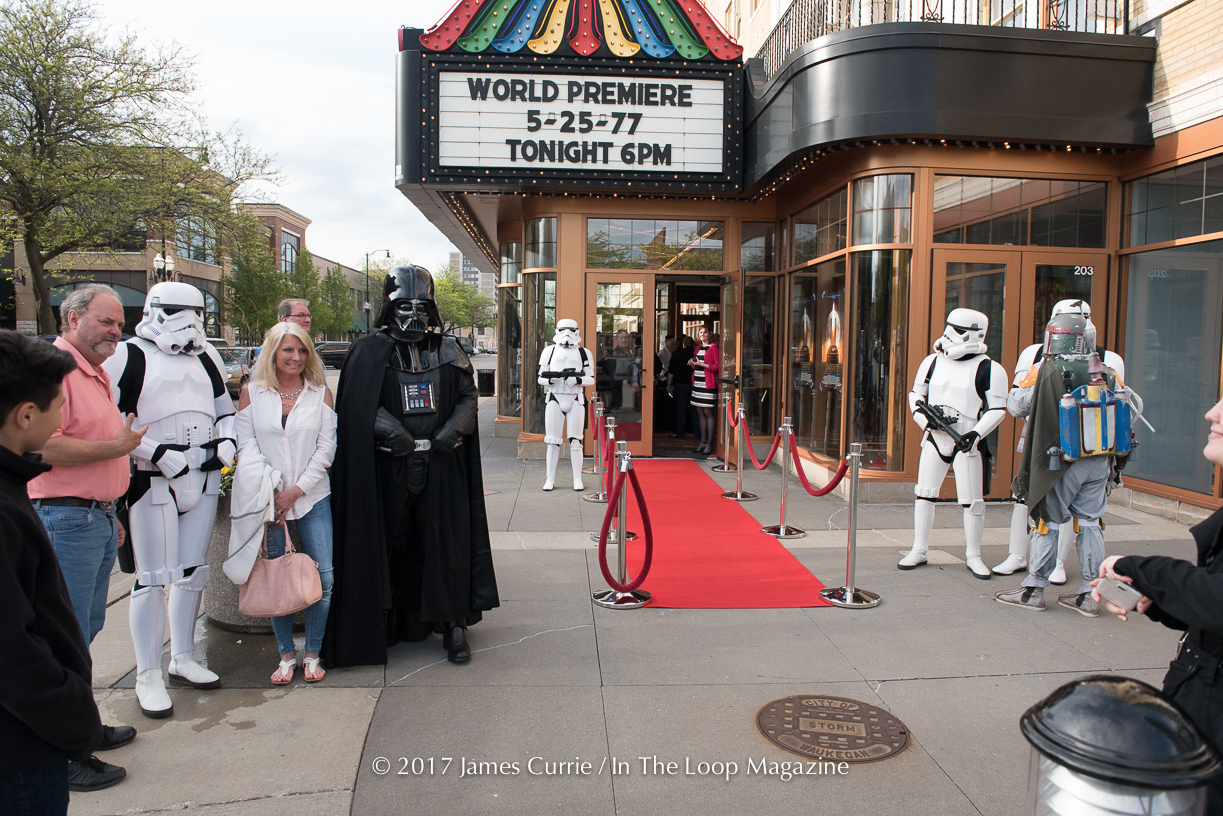
By James Currie
Ok, so he’s not just a “Wadsworth Man”, he’s Patrick Read Johnson, the Hollywood Writer, Producer, Director, Actor and Special Effects guru who brought us classics like, Spaced Invaders (1990), Baby’s Day Out (1994), Angus (1995) and Dragonheart (1996). I wanted to give focus to how personal this project is to Mr. Johnson. It truly is a moving tribute to his home life, family, friends and how he got that start to his famous career. Going from small town local to big time Hollywood movie maker. This time around, Johnson has made something more personal than ever before. 5-25-77 is a biopic piece about his youth, growing up in Wadsworth, Illinois, living life in the Midwest to it’s fullest, but having Hollywood dreams that would propel him to the stars and back.

Johnson is a storyteller, a scene maker and visionary artist who has been making his own path since the age of eight. He’s a man on a mission to get out his early life story. It’s taken a while, almost 15 years from concept through completion, but that day is finally here. The official release date is May 25, 2017. Why is that date important? Because it’s forty years to the day from the official release of the original Star Wars. A film that inspired Johnson to become the man he is today, more specifically, the filmmaker that he has become releasing his latest, and most involved project of his career, 5-25-77. A personal story about his youth that forever changed his life’s path. A love letter to Star Wars.
On Monday, May 22nd after more than a decade of actually filming it, he premiered a special showing to the community that helped inspire and shape him. The Genesee Theatre in Waukegan, Illinois was ground zero for this movie premiere as well as a key focus on the subject matter of his film. It’s where he saw Star Wars for the first time back in 1977. A movie that forever changed his life. But it doesn’t stop there, it was just the beginning.
At the premiere, we are greeted with Star Wars characters outside the grand old movie house. Under the glittering colored light mezzanine that resembled a galaxy far, far away, Darth Vader, Boba Fett and a hand full of Storm Troopers guard the entrance, take photos with fans and set the tone.

This was the personal premiere for the folks who helped shape and make it and as Johnson put it, they all helped in someway or another. There were cast and crew there yes, but there were also childhood friends, teachers, family members and ex girlfriends. It was an intimate group who all rooted for the home team to win and boy did Johnson hit it out of the park.
Inside we find guests chatting with each other and catching up on old times. They talk about what role they played in not only the movie, but his life and ponder on the upcoming screening.
The house lights dim and Patrick Read Johnson walks out and takes center stage. He’s alone armed only with a mic, his ball cap and a smile from ear to ear.

Johnson starts the night off with plenty of genuine “thank yous”. That leads to behind the scenes discussions, pointing out people in the audience to congratulate them and tell stories on what went down in those many years of production. He went on to say, “This could not have happened without all of you.” He was humble and proud. This was his night. A round of applause ends as Johnson introduces the movie and exits the stage.
The movie begins with a young Johnson watching a movie in the very same movie house we are sitting in. This was a recreation of the moment when his dad and mom took him to see the film, “2001: A Space Odyssey”. It was at this point, an eight year old Patrick Read Johnson decided filmmaking was going to be his destiny.
This isn’t going to be a review of the actual movie, trust me, it’s very good and there will be plenty of those reviews going around, but more on the events that took place as conducted through an interview with Patrick Read Johnson. We wanted to find out how this came to be, how it was finally finished, how he got certain members involved and more. Think of this as the “behind the scenes” or Blu-ray extra features.
The official release is today, 5-25-17. 40 years to the day of the premiere release of the original Star Wars (1977).

For more about the actual movie itself:
Click this link to watch the trailer
Click this link for show times
Click this link for synopsis
————————————————————————-
James Currie: First off, where is that super awesome “Landspeeder burnt orange” Pinto and why was it not parked outside the Genesee Theatre?
Patrick Read Johnson: Ah, well, that damn car. The Pinto lasted through almost all of it but finally succumbed to, it had a good life, but the engine gave out just a few weeks before the premiere. I could choose between finishing the movie, or fix the Pinto. I though, if I show up with a Pinto and no movie, I might be in trouble. It now sits in my favorite garage in Winston-Salem North Carolina waiting for it to be brought back from the dead.
JC: It’s going to be one of those iconic movie mobiles. You know, like the Vacation station wagon, The A-Teams van or Luke’s landspeeder for sure.

PRJ: (laughs) I will say it was fully restored while back in Illinois a few months ago back by a guy named Bill McCorkle and Joe Kulaga. They said, bring it over and we’d fix it all up for you. They had no idea what they were getting into. It was pretty rough. He said, we’ll take care of it. After six months, he finished it. His kids were extras in the movie, so they did it for free. It’s looks great, but doesn’t run.
JC: So the premiere looks like it went over very well. How did you feel about it?
PRJ: Yes it did. I was really happy about it all. Everyone was really great there. It just felt right.
JC: You started working on this back in 1999?
PRJ: Yeah well, I started writing this back in ‘99 but didn’t start shooting it until 2004. Then we kept shooting it for the next couple of years, again and again, adding to it. Then it kind of went into a hibernation for a while when the perception was that Star Wars was not much of phenomenon anymore. That hurt us actually, but it also gave me time away from the film and came back with fresher eyes and I recognized some things about it that didn’t work the way I wanted them to and some things I could do to really radically improve the telling of the tale.
JC: Such as?
PRJ: Well, originally, the whole movie was to take place on 5-25-77, the day that Star Wars came out. Then we did flashbacks to how our main character got here. That was the original screenplay, but by the time we got back to shooting it again I was beginning to suspect that was a narrative effect that wouldn’t hold up to the dramatic tension I wanted. It seemed like we were putting the breaks on constantly to go back and tell the story and I didn’t know that was going to help with the tension in the film and the audiences involvement. So we shot it as a more linear fashion but then when we went back in and cut it all together and liked it, we started thinking, hang on now, one of the problems that were having a wonderful linear story but it’s a long haul. How can I make it shorter without cheating the meaning of the moments of the sequences that I’m trying to keep in here, is there a narrative device that I can use to get in and out of here from a different perspective and I realized that, there’s a moment in the film, late in the film were Pat is sort of rolling through his collection of films on the reel on his editing machine kind of remembering life up until this point, he’s kind of losing it, so he starts rewinding this thing to when his life was new and young and innocent and we though, what would be more powerful is you simply cut to him sitting there rolling through the movie we’ve been watching. So in his mind, it’s leading up to those moments of frustration.
In other words, the whole story is kind of being told from that moment when he kind of lost everything and he’s deciding what to do with his life. So the narrative device of using that editing machine helps with the dramatic thrust of the film I think.
The part where Pat’s father, played by me, says, “Editing is when you see things in your story that you don’t like you take it out.” The audience seems to agree. A lot of people who saw earlier cuts of the film say this worked much better. It really dramatically changed the story telling.

JC: And that’s what I’ve heard from others who’ve seen the other, earlier cuts. They said this was so much different than what they originally saw. It really works much better.
PRJ: Yeah, I think that they (the audience) don’t even really see it happening that way. They don’t know what it’s doing to them to have it presented that way. And that’s what I like about it, it’s pretty subtle.
JC: I also like how you used those physical camera changes to represent different points of view, feelings and story lines. At one point you were using Canon XL-1’s and T-3’s I think right? What all was used to make this picture and how did the actual filming/recording process come into play. I mean, when you first started, digital cameras were still in their early stages right?
PRJ: Yeah, the film in its previous iterations was replete with lots of sort of “temp” shots that were meant to be later re-filmed because they were shot on like a DV cam or HDX camera that we knew when we got more money we’d go back and reshoot these things with real cameras and some we did get to redo and others not. There were certain scenes or sequences that were just not meant to be put up on the big screen but then we said, well hang on a second, as part of this narrative cinematic device of using the editing machine as the through line, we can always matte and reduce down to collapse his world down and his footage down into something that was watchable.
At the very end we ending up using Sony A7S-2 and even at one point a Canon 5D Mark 3 at one point. Pretty much every camera at the time to present including a RED camera and Panavision. I mean some of it was shot 35mm anamorphic wide screen and some of it was Super 16, pretty much every flavor of film other than light bright.

JC: Well it all worked and was kind of cool to see like that. Almost homage to film as a medium.
So, how much of what we saw Monday night was what you actually film from the beginning to what you remade in recent years?
PRJ: I’d say probably 80% of what made it to the film is what we already shot. The things that were done in the last few years were things like the opening title sequence and me playing my father those sections didn’t exist before. We had to grow that gap from when he saw 2001: A Space Odyssey as a boy to all the sudden we see him as a young man. We needed to fill that in with scenes to build the relationship up and allow the viewer to emotionally grow into that film geek he became. It sets up why he became a filmmaker verses how too. The power of seeing that visually is more than just trying to fill in the blanks with your mind. You really see that he must have had a crazy life as a kid. Hahaha
That was the kinds of things that were added in the last couple years. Also special effects like the pinto sliding into place in front of the theatre and school. That was actually shot just three days before the premiere. (chuckles)

JC: That’s pretty incredible and just proves how still involved you are with this film. Well congrats for making your premiere! Ha
On that note, what did we actually watch the film on? What format did you decide on film? Digital media? Hard drive? What was coming out of that projection both at the Genesee Theatre?
PRJ: Oh it was digital. There are no film prints. Not that I wouldn’t love one, but cost and the difficulty at getting one at this point is just not attainable for now. Believe it or not, the actual film you saw on Monday was not the final film. (sighs) The final ultimate version of this film will come out digital and it will have a lot of interesting fun stuff that we just could not get ready for the theatrical release. If we would have had another month, you would be seeing the final, final cut for the digital release. I had made the target date release last year for this 5-25-2017 theatrical release I just could not make that date. Films are never really finished, they’re abandoned. Hahaha

JC: So here we are all these many years after you began this journey. Did you ever think this film was going to get done? Or, when you first started it, did you think it was going to be like the other projects you’ve worked on?
PRJ: I was sure that 9 months after we started it, it was going to be in theaters. Hahaha. And by the way, if we had done that, it would have been a disaster. The film wasn’t correct then. The film ultimately taught me what it needed to be. Time was a luxury. I was fortunate enough to have investors that believed in me and said look make this the way it needs to be. Get it done, but make it right.
I’ve had other offers and opportunities to have other make it, or make it the “easy way”, but glad I didn’t. It just wouldn’t be mine or right.
(Side note: There were some very big names talked about and interested in this during the early treatment and script days. One included Francis Ford Coppella.)
But that was just not was I was trying to make. I was trying to make American Graffiti for the Star Wars generation. I mean, nothing is American Graffiti but this is maybe a distant cousin that shows up at family reunions and everyone just say, OK yeah, it’s good to see ya and accepts it. (laughter)
JC: Nice. I love the analogy. Now, overall, what would you say was the BIGGEST challenge to making this film? Obviously time and money are always at play, but what was the one thing that stood out while making this as being the greatest obstacle?
PRJ: The biggest challenge would be gravity. Getting up everyday, literally lifting myself out of bed to do this. Saying to my self, it’s another day this film isn’t finished, what do I do to change that.
My parents passed away before I finished this. My mother just passed this last September, she was a big part of this story, but I made a promise to her and everyone else that I would finish this picture no matter what. You know Winston Churchill said, “Never, never, never quit.” I have a paperweight with that on it. That’s my mantra. It keeps me going.

JC: How did John Francis Daley get involved?
PRJ: I met John at his costume fitting. He was a last minute for another actor who was already famous and who’s parents and management decided that they wanted half the profits from this like two days before we started filming or he’s not going to be in the movie. And I said, we’ll are you putting in half the money to make it? So we lost him and immediately started looking for a replacement. My extras casting director actually said, “What about John Francis Daly?” And I said, the little nine year old kid from Freaks and Geeks? And she said that was like nine years ago. I said, what, wait, really? And so we put it out there and invited him. He liked it, we signed him and I had no idea if it would work or not. He didn’t really look like me, then we put the wig on him and said, OK, there you go.
JC: Do you think you helped influence or guide him in his career path to being more behind the scenes in making movies? He’s been doing quite a bit more of that then acting since your film with projects like, Horrible Bosses, Vacation and upcoming Spider-Man reboot series.
PRJ: I’d love to take credit for that, but I won’t. I think that John has always decided from the beginning that he wanted to direct and produce. He’s got an incredibly keen mind and incredible observer. He was like a sponge. The reason he pulls off this terrific performance is because how much he pays attention to details and what’s going on around him.
For example, when other actors would go back to their trailers and craft service and whatever, John would stay around set and watch me and ask questions. He would learn how to be me by watching me and my motions, mannerisms and vocal patterns. Then he’d incorporate them into his performance. He found a field guide to Pat Johnson. That’s what a good actor does.
He always had ideas how we could do things different or better for the scene. But I’m sure he was watching and learning while on Freaks and Geeks from all the writers and producers. I’m sure he said then, I want to do that.

JC: Well, I’m sure whether you want to admit it or not, you were an influence and mentor during the process. Especially since he was so observant. You should be a little proud of that.
PRJ: Well, I’d be honored to be included in just the few little bits of the DNA that’s Johns Francis Daly’s career. I think it’s just the beginning for him. He’s got a long way to go and is going to get better and better.
JC: He really is a stand out and just seems, like you said, to be getting better and better with every project.
JC: How did you get such an amazing soundtrack in this film? Its filled with great tunes both original and classics. I mean, you have a Beatle involved! Ringo Starr has a solo track in it.
PRJ: Yeah, Ringo personally said yes to his song in the film. He said, (in Patrick’s best Ringo impersonation) “Sounds like a very charming film. You have my permission.”
JC: Amazing. Alan Parsons and David E. Russo are a big part of the soundtrack as well. How did that come to be?

PRJ: Well David and I have had a relationship for a number of years. He did the soundtrack to Spaced Invaders and Angus. I just love working with him. He’s such a Zen, Yoda type guy that he’s just so easy to work with, laid back and open, his music is just gorgeous.
Alan Parsons I’ve know since, god, the 80’s? Through Douglas Trumbull of all people. I met his partner in crime Eric Woolfson when he was meeting with Douglas one day back in ‘83 or ‘84. I was hire by Eric to do a music video (that was later cancelled) for Limelight. We just all hit it off. Whenever I’d get a new car in high school or college, everyone would say, “Did it come with the preinstalled Alan Parsons Project tape?” (laughter) because that was like all I listed to at one point. In the process of that, I became friends with Alan. We’re sort of similar guys. We sort of look like each other at certain points of our age. We both have the little gap between our teeth and we were both Star Wars nuts.
It was always my dream that someday and some point, he’d do the soundtrack to one of my movies and when 5-25-77 came along I asked him and he said absolutely, when do we start.
JC: Will there be a CD or album release for this? Maybe a digital download with the purchase of the movie? I saw a lot of people bobbing their heads up and down during the movie. I caught myself tapping my toe once or twice.
PRJ: You know, I certainly hope so. I’ve been approached by a couple groups about that. The licensing would be the hard part. But I’m sure there’s a way. Especially since some of these songs are ultimate masters and remixes that have never been heard. The Ringo song, Photograph, is not the original version. It’s a different version that we worked on with him and his engineers to get tuned up for the end of the show. No ones heard this one before. I certainly hoping for that.
JC: So after the premiere, how was the reception? Did you get any feedback from all your friends and family who attended?
PRJ: I did. They absolutely went nuts for it. Which given how long they’ve been waiting and given there expectation level, all though maybe that expectation level wasn’t that high after all this time, I don’t know, but the battle fatigue of making this might make any result of this exciting. (laughs)

JC: Was Linda (Johnson’s love interest in the film) a real person or a made up roll and did she make it to the premiere?
PRJ: She was not only a real person, she was there at the screening Monday night. I didn’t call her out because, she is very shy and I wasn’t sure she’d be happy about being called out, so I just kind of left it.
JC: I’m assuming you’re still friends then?
PRJ: Oh yeah. Very much so.
JC: Has Steven Spielberg seen 5-25-77? I’m curious on his take on your actor, Kevin J Stephens portrayal of him. It was really remarkable. A great interpretation and visual of how young he was at the start of his career. You captured that magically.
PRJ: Ha. As far as I know, he has not yet seen it. Over the years I’ve made a couple attempts for him to see it, but I’m actually glad he didn’t see the early versions. I’m able to get in contact with he and his people, but just haven’t truly lined that up. You’ve got to imagine what it’s like for Spielberg, I mean, it’s not just like, hey Steven can you take a look at this like 5-10 minutes of something, but your asking him to take two hours out of his life to watch my movie. I mean, just think how many people ask him for his time and opinion on things. And he started my career with Spaced Invaders. Maybe he’ll just show up in LA for the premiere there or maybe he won’t. I don’t know. I’d like him to see it for sure.
As for Kevin Stephens, he was uncanny. People who know Steven very well said, “Did you get a time machine?”
JC: I thought you used the new Star Wars facial recreation CGI they used on Grand Moff Tarkin or Liea.

PRJ: Well, it’s better because, he took on the part to mimic him. Kevin wasn’t even an actor! I just worked with him, gave him some reference materials and said, don’t impersonate him, just imagine what it must have been like to be that young, created JAWS and working on one of the greatest, and my personal favorite movies, Close Encounters of the Third Kind. Imagine being in charge of this, excited but young and eager and in awe of all things going on around you. It was so difficult to pull off in the film. He gets what Pat’s trying to be. It was him trying to be caring for me and what I was doing at that young, naive age.
JC: Do you have any tips or guidance for that next small town, up and coming filmmaker looking to make it big in Hollywood with his crazy film ideas?
PRJ: Just do it. Don’t wait for anyone to give you permission. You don’t have to go to film school. I mean, film school is a wonderful thing for some filmmakers and an important thing. And when I say you don’t have to, I’m not trying to sell some school short, I’m just saying don’t go to a bad film school. If you’re going to go to a film school, go to a really great one. You know who they are. One of them is the University of North Carolina School of the Arts. It’s a tremendous film school and I’m really proud to be teaching there. Their mission there is to create actual working filmmakers not just be a degree factory.
If you’re not going to go to the best school, then don’t waste your time and money. If that’s the case, just take the same money and buy yourself a Macintosh and Premiere software and really good DSLR or any one of these new digital cinema cameras and go be your own movie studio. Short films are great and they can get you noticed, but if you have a feature in you, do it. It doesn’t have to cost much money. It never costs more money to be clever. If you can’t write well, but you can direct well, get with a great writer and do something together. The story is EVERYTHING. If you don’t have a great story, you will never have a great movie. Ever. No matter what you throw at it.

JC: And I think your film is going to do just that. Inspire a whole new generation of filmmakers to see what you’ve done, with what you had. And to see where you came from, to where you’ve gone, very inspirational.
PRJ: Thanks. I hope so. I mean, if I can at least get that kind of interest from it, I’ll be happy. At one point, we were premiering this at a film festival in Canada a few years ago and a student came up to me after and said, “I know what first features going to be about now. It’s going to be about the day I saw your movie.” I said, “Please do that.”
JC: What are you working on next?
PRJ: Nothing. I need breathing room to figure out what am I willing to risk with the next decade. I through myself all in to my projects. It’s a commitment. But I’m hoping that when this comes out, it will generate enough interest and people will say, what do you want to do next? This experience has evolved me. I’m just going to let it sit for a minute and see what the universe throws at me.
JC: On a side note, there’s been talk of a Dragonheart reboot for a while now. The 21st anniversary is coming up at the end of this month May 31, (Johnson seems to like May releases, besides Dragonheart and 5-25-77, Dead Heat was also May. Spaced Invaders was almost a May release, missed it by 3 days) do you have any involvement in that? Or is it all just talks and rumors still?
PRJ: I didn’t know there was a Dragonheart reboot, so I guess not. (laughter) Well good, I hope that they make it well. Hahaha. Just remember, when I was directing it, it was Sean Connery and Liam Neeson as the knight and Elizabeth Hurley as the girl. Jerry Goldsmith was doing the score and little things like that.
JC: WOW, that’s a whole other story in itself there. We might have to revisit that again someday.
PRJ: Yeah, I’m wondering who would direct it? I know it made 4 direct to video sequels. If it were me, I’d make it a TV series. Its kind of like remaking Planet of the Apes. We all know how it ends. Is it worth it?
JC: Well, 5-25-77 was really well done Pat. It exceeded my expectations. I’ve known you for a while. We worked together at the fruit stand (Apple Store) and I almost even got to help work on the picture with you once when you were in Iowa filming. I’ve been following the movies process for many years. It really worked well. It got my toes tapping, I belted out a couple laughs and even felt a tear well up a couple times. Plus of course, I’m a huge Star Wars fan myself.

PRJ: Thanks. That means a lot to me. And how fun that we met at Apple and now here we are. This is really cool. That place is a movie waiting to happen. (laughter) I should make it someday. There are some characters there for sure.
But yeah, that’s what I was hoping people get. That’s what moves me when watching a film and makes a great movie for me. I mean, ET does it for me still and Close Encounters is just transcendental to me. It’s my perfect film. It rewired me. That’s what I want to convey.
JC: So is there anyone out there today doing that to you now? Any new or veteran filmmakers pulling at your heartstrings or turning your head?
PRJ: You know, there are a lot of new filmmakers doing things that inspire me or I’ve taken notice to, but it’s still the original people that inspired me to start all this, still making an influence in my life. I think that Ridley Scott’s second coming, with “The Martian” is just the best. Here you’ve got a guy in his 70’s who made the most exuberant, youthful and hopeful and positive, awe inspiring films of the year for me when he did that. It so hit me. It so got me. A different take from a man who was so dark before. And Christopher Nolan is someone I truly admire but vexes me because “Interstellar” was one of those films that I partially absolutely love, but partially went, oh no, no, no, no. I mean, it was almost an impossible task. He was trying to make his “Close Encounters meets 2001” it shares so many of those elements but of course it has to be compared to them but it’s impossible weight to bare. Chris Nolan made one of my other all time favorite films called, “The Prestige”. The kind of film that I’d aspire to make in my wildest dreams. “Inception” is a tremendous film, but I think “The Prestige” is a better film. On an emotional level, I just thought “The Prestige” was better for me because of that. It’s truly magic.
I can’t wait for anything Steven does. He just keeps reinventing himself. “Munich” is just one of the best. There is a death scene that is one of the best scenes ever filmed. To me that moment of the depth of human empathy from death is just so amazing. That was just one of the most profound moments ever seen on the screen.

JC: You have a couple of those moving scenes in your film too. When we saw them, it got quite and moved us. I don’t want to give it away, but when the public sees those moments, they will feel it.
PRJ: Thanks so much again. That’s truly what I’m looking for.
JC: Thank you for taking the time to do this Patrick. I think this story is going to move people. I hope that it gets some inspired to create and take the leap of faith to making their dreams come true as well.
For more on Patrick Read Johnson and Moonwatcher Films click here

Related Articles
-
 Legendary Mask Maker, Zagone Studios,...
Legendary Mask Maker, Zagone Studios,...Oct 25, 2021 1
-
 Photo Gallery: The Ultimate Doors @...
Photo Gallery: The Ultimate Doors @...Feb 24, 2026 1
-
 The Historic Stage At The Genesee...
The Historic Stage At The Genesee...Feb 23, 2026 0
-
 Chicago’s Own: Post‑Punk Duo...
Chicago’s Own: Post‑Punk Duo...Feb 20, 2026 0
-
 Milwaukee’s Mega Festival,...
Milwaukee’s Mega Festival,...Feb 19, 2026 0
More in this category
-
 The Historic Stage At The Genesee...
The Historic Stage At The Genesee...Feb 23, 2026 0
-
 Chicago’s Own: Post‑Punk Duo...
Chicago’s Own: Post‑Punk Duo...Feb 20, 2026 0
-
 Milwaukee’s Mega Festival,...
Milwaukee’s Mega Festival,...Feb 19, 2026 0
-
 Broadway In...
Broadway In...Feb 18, 2026 0



